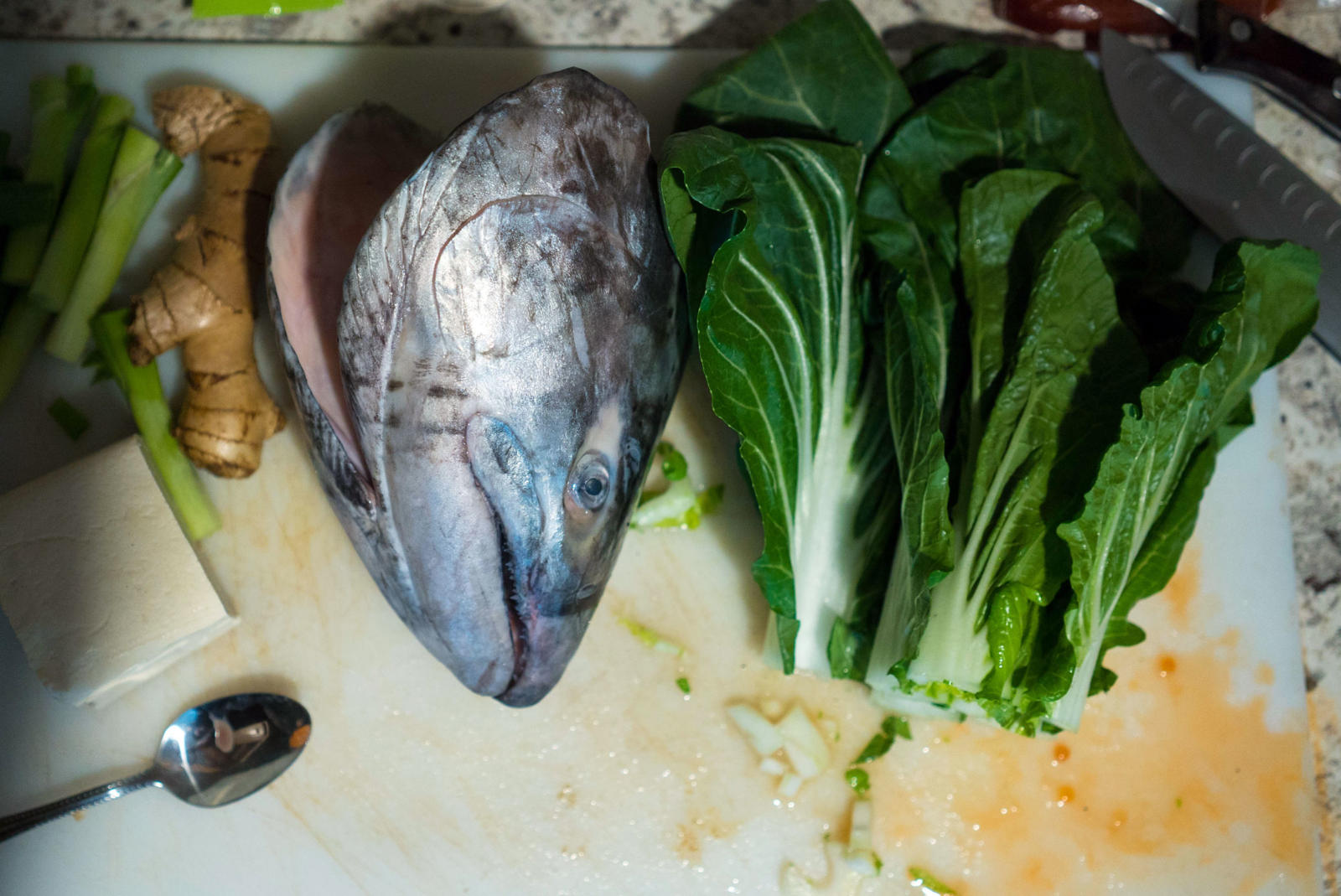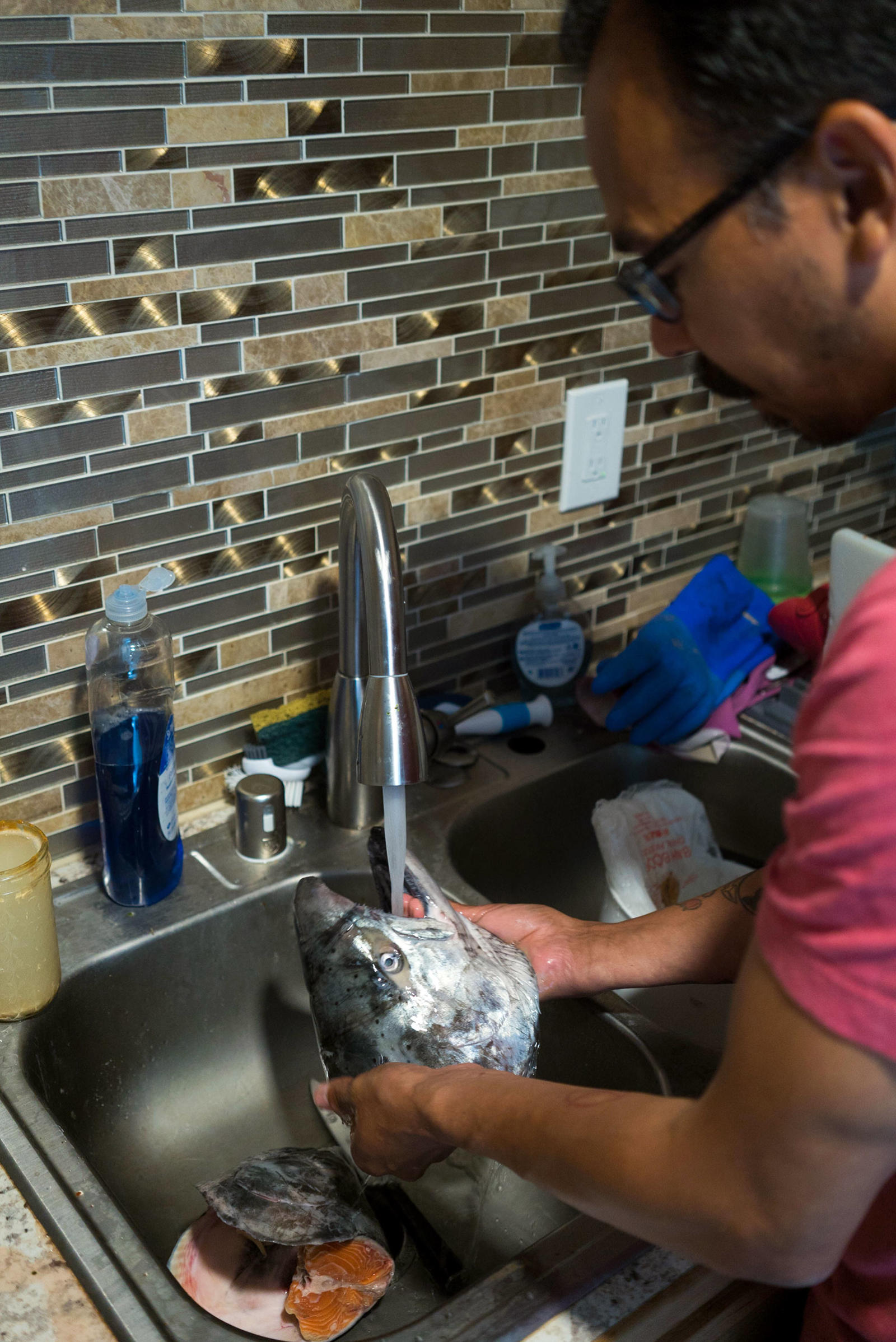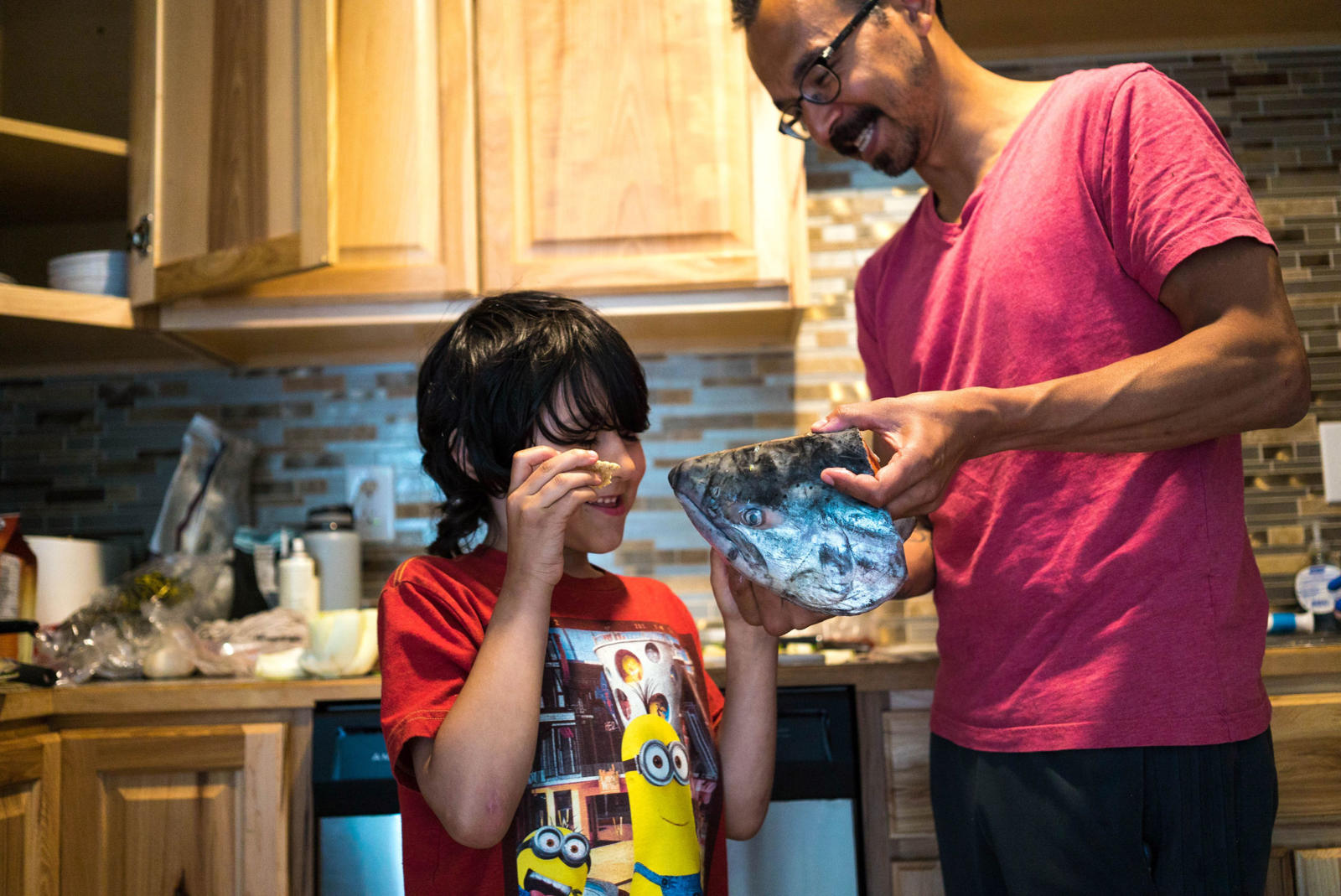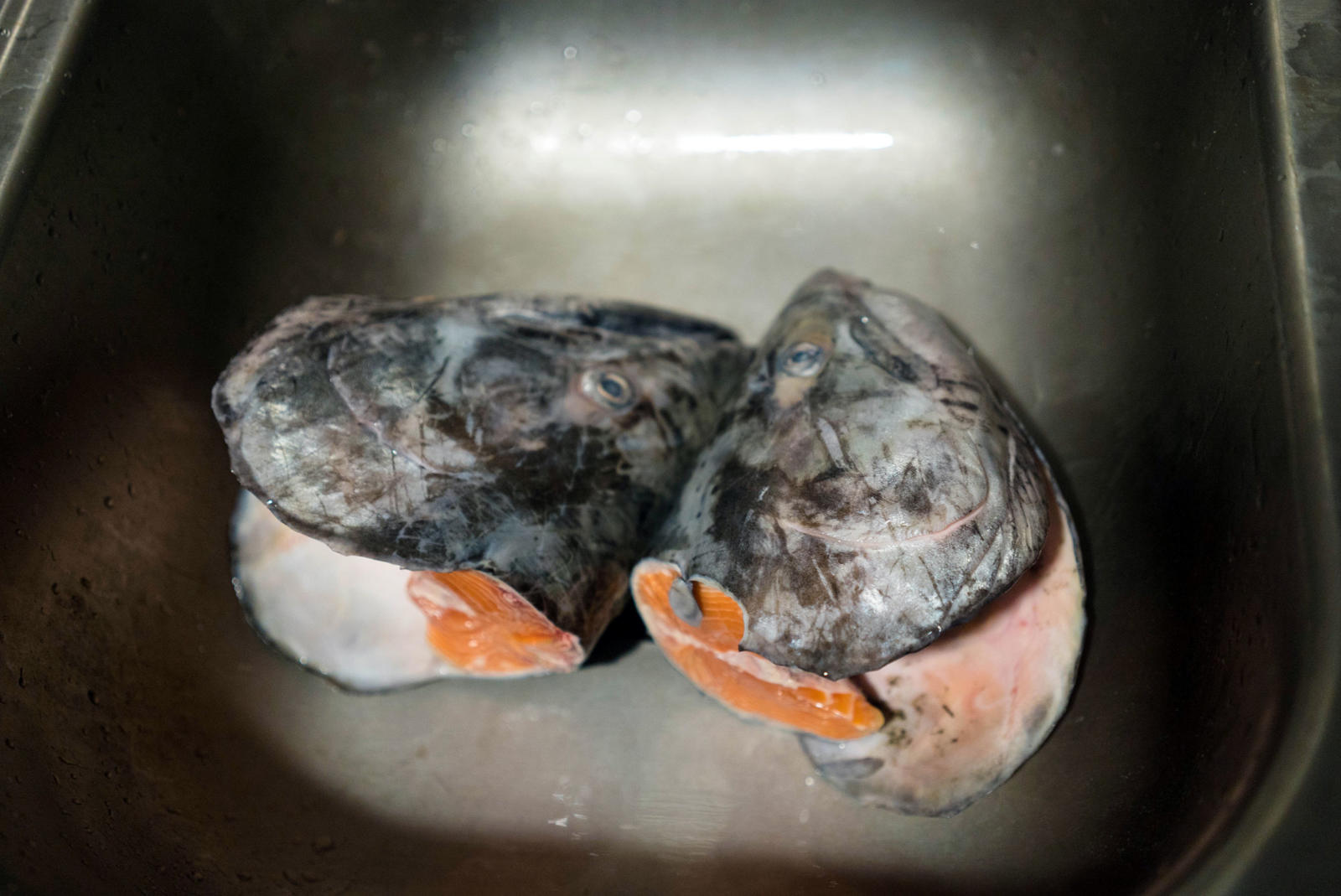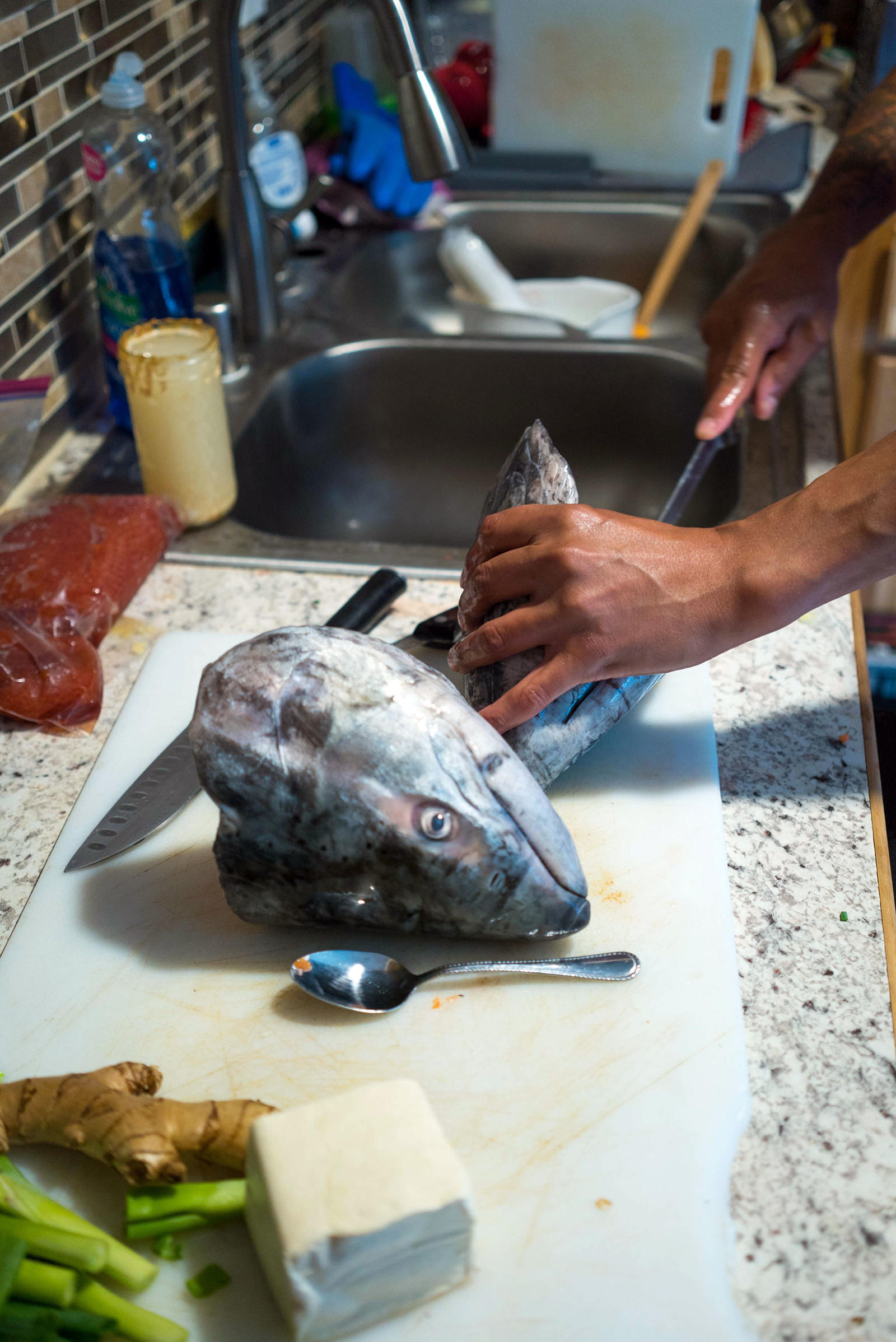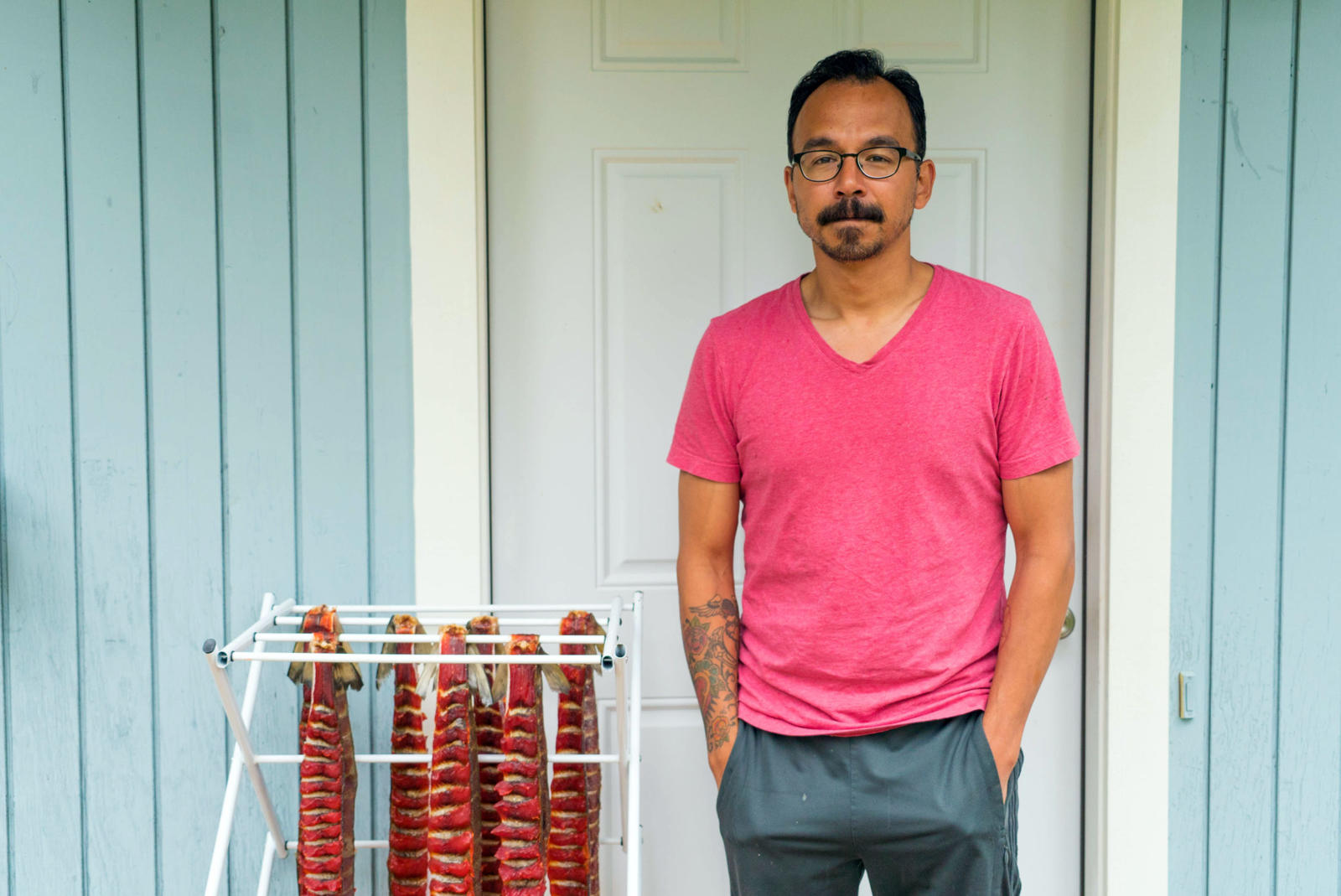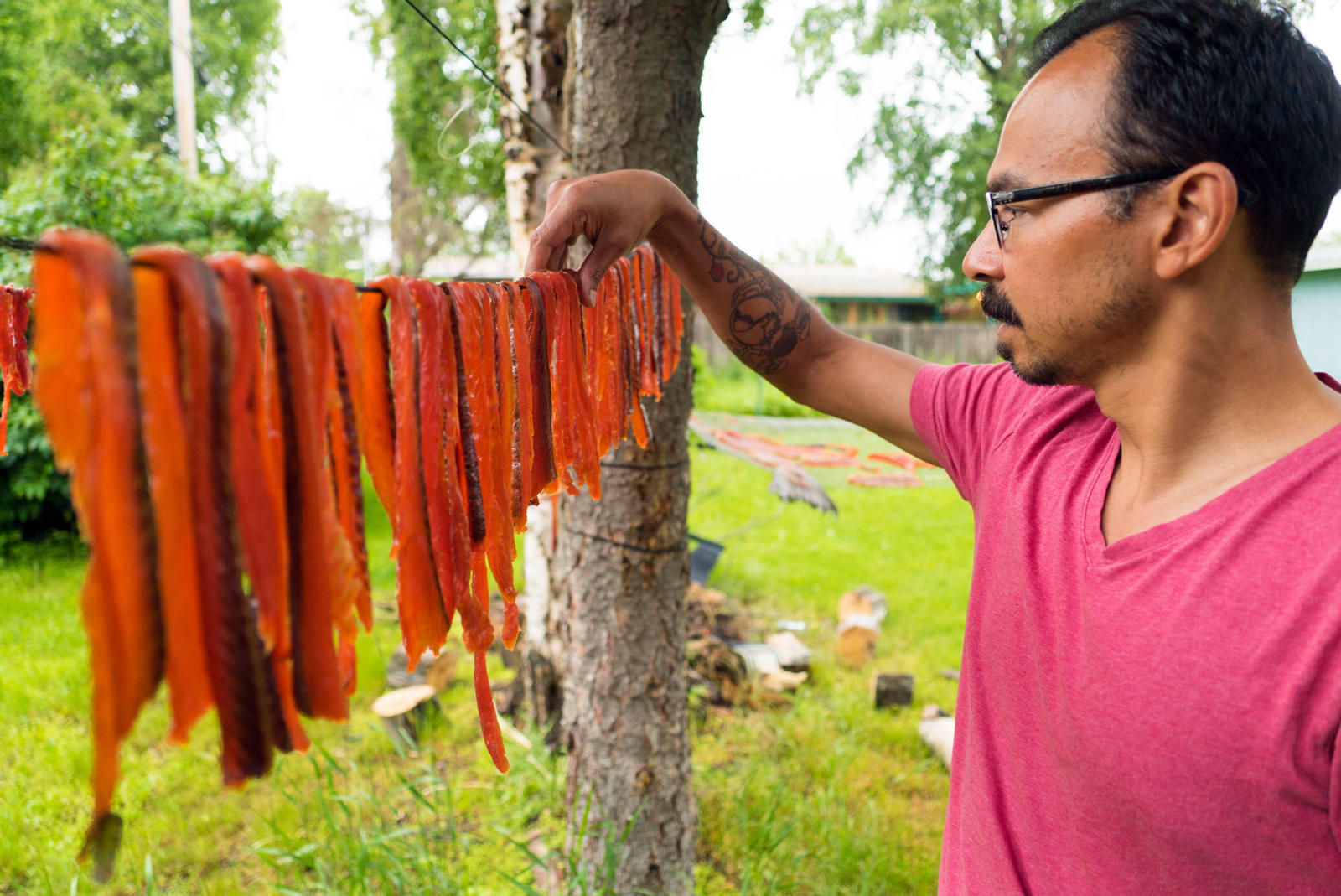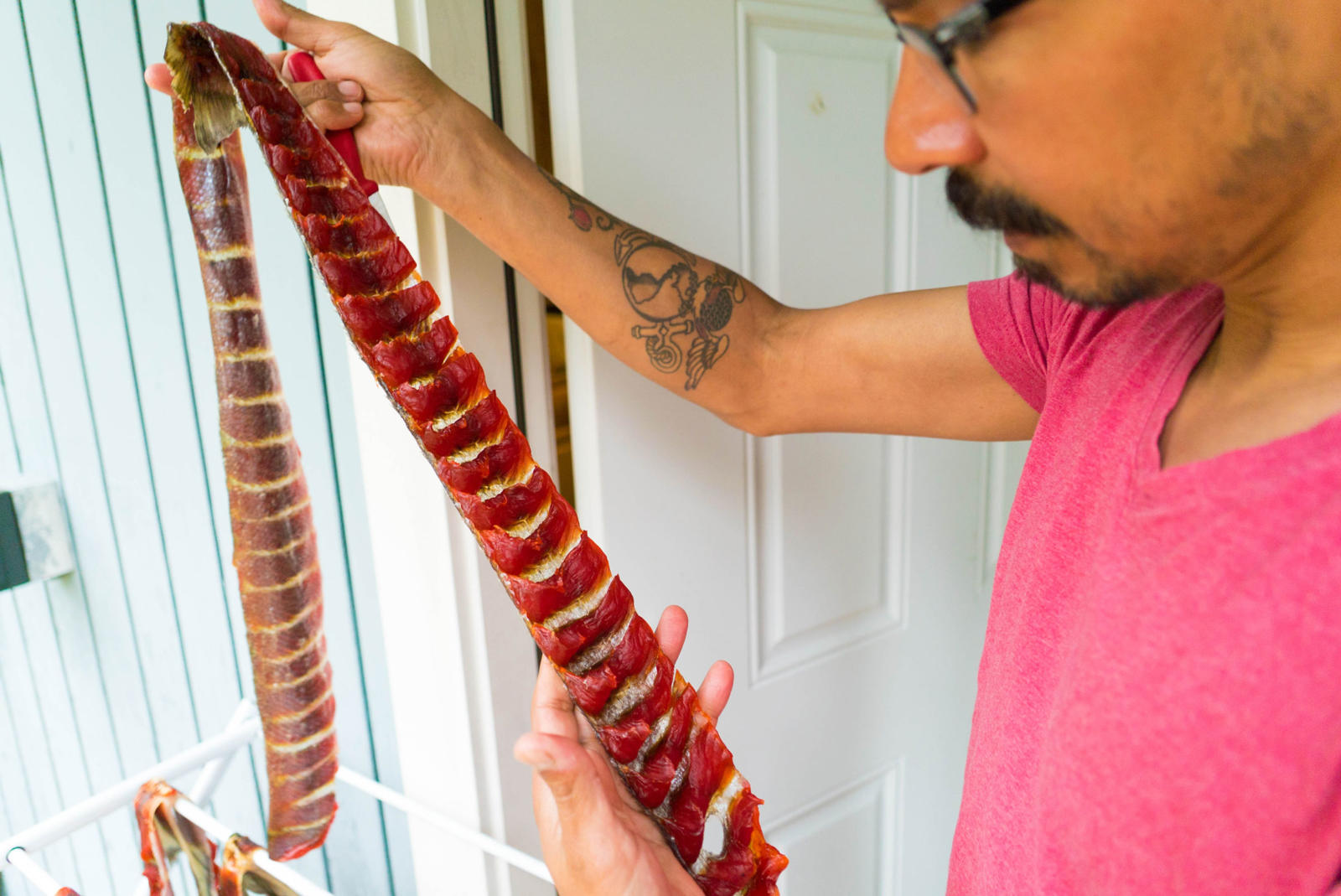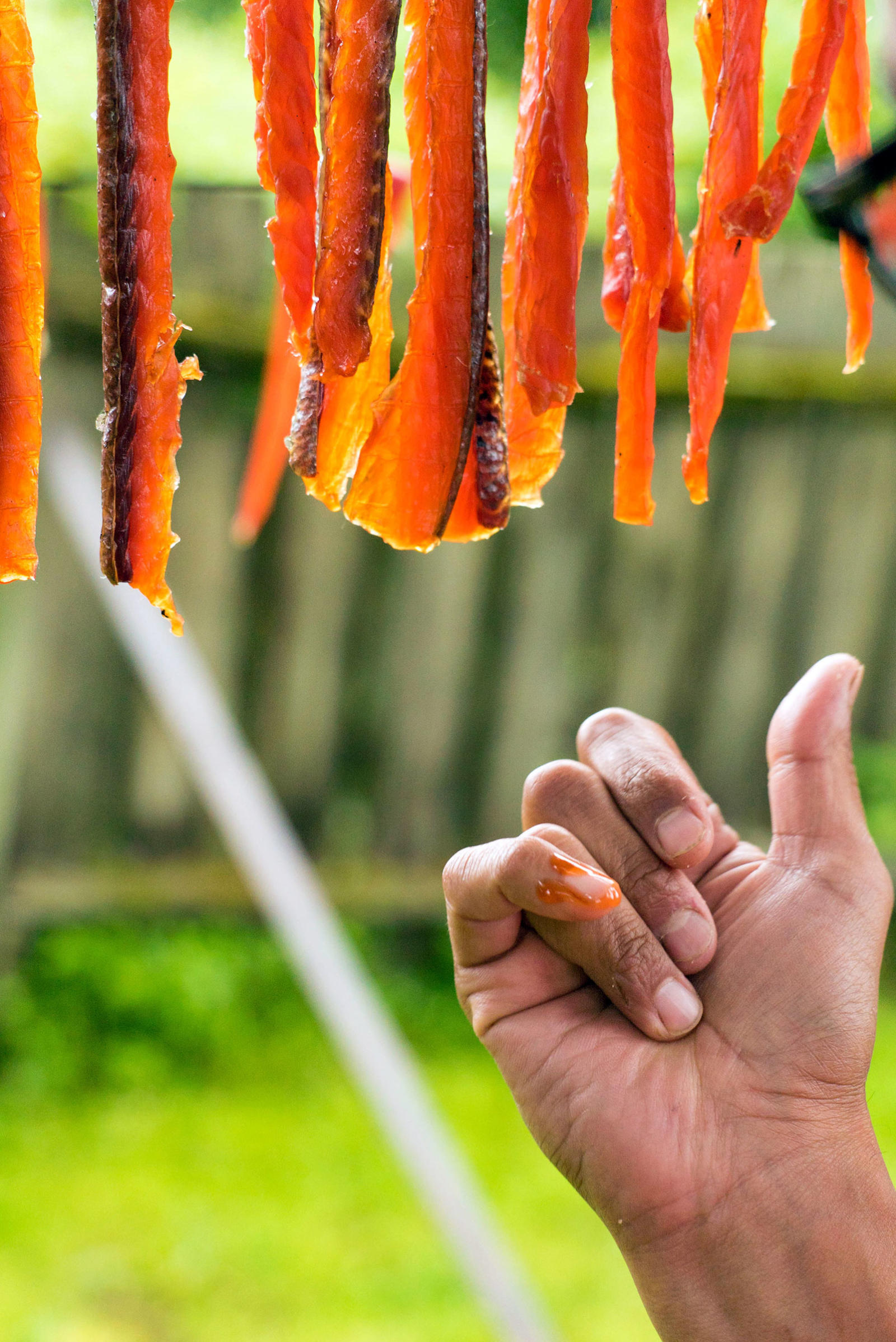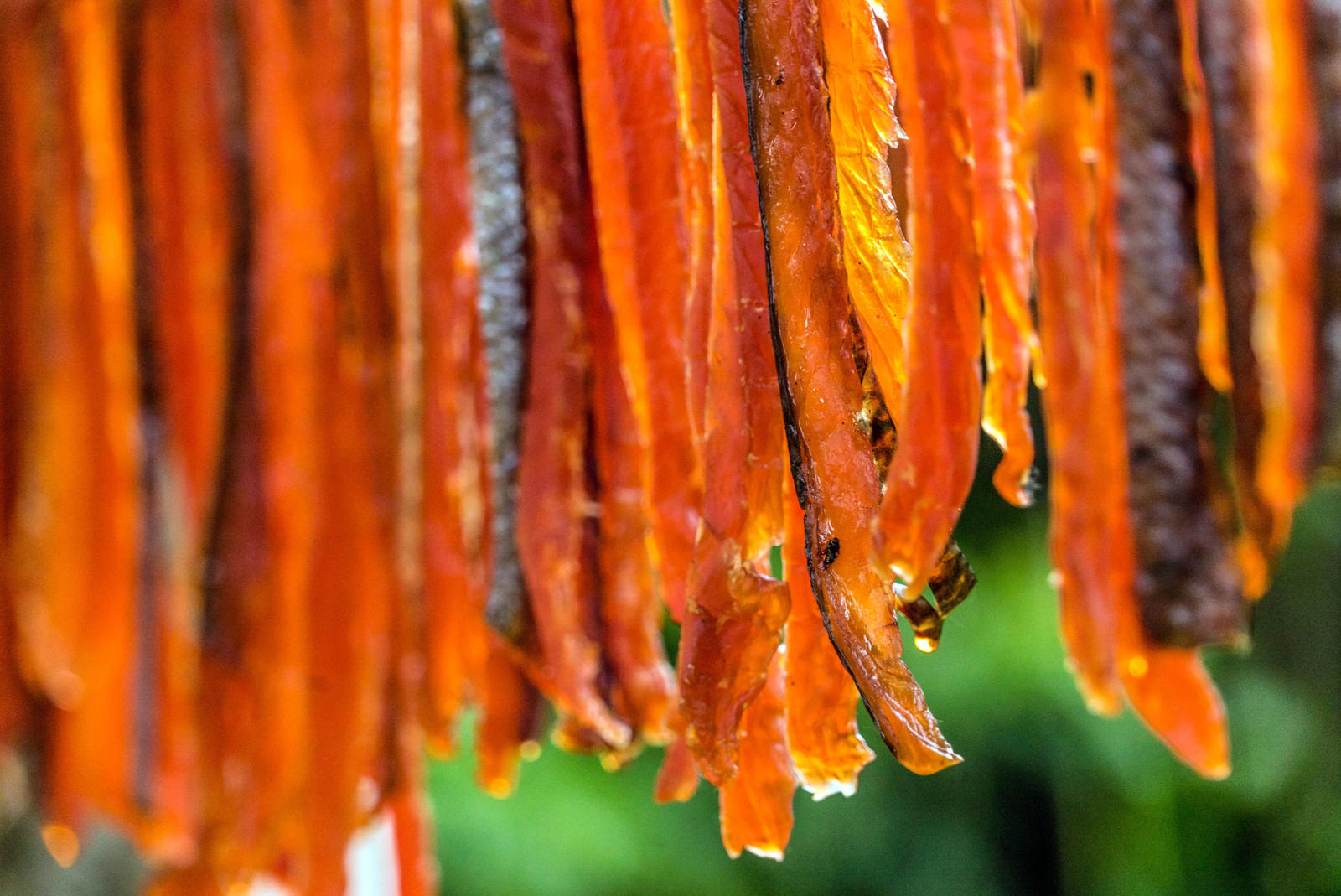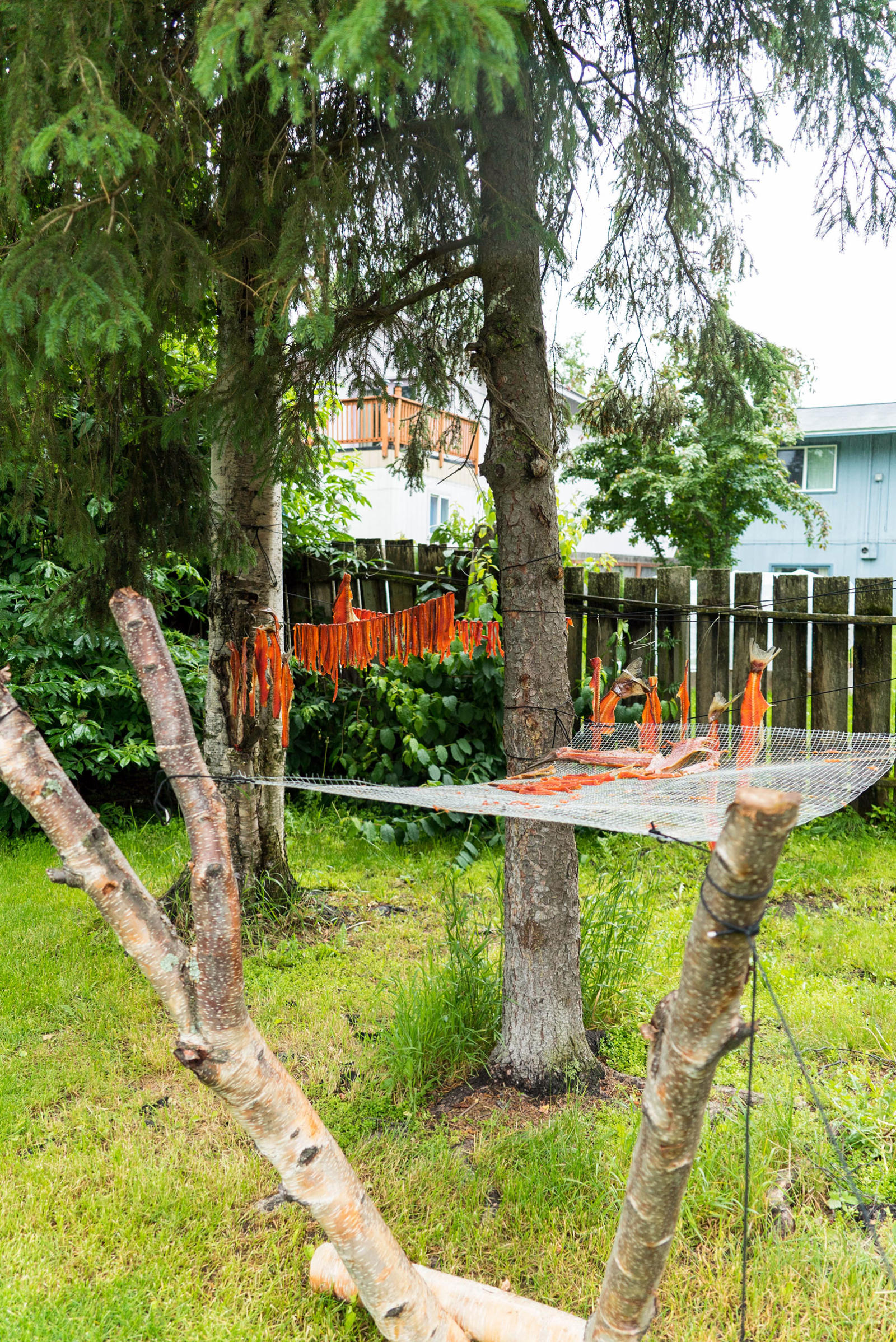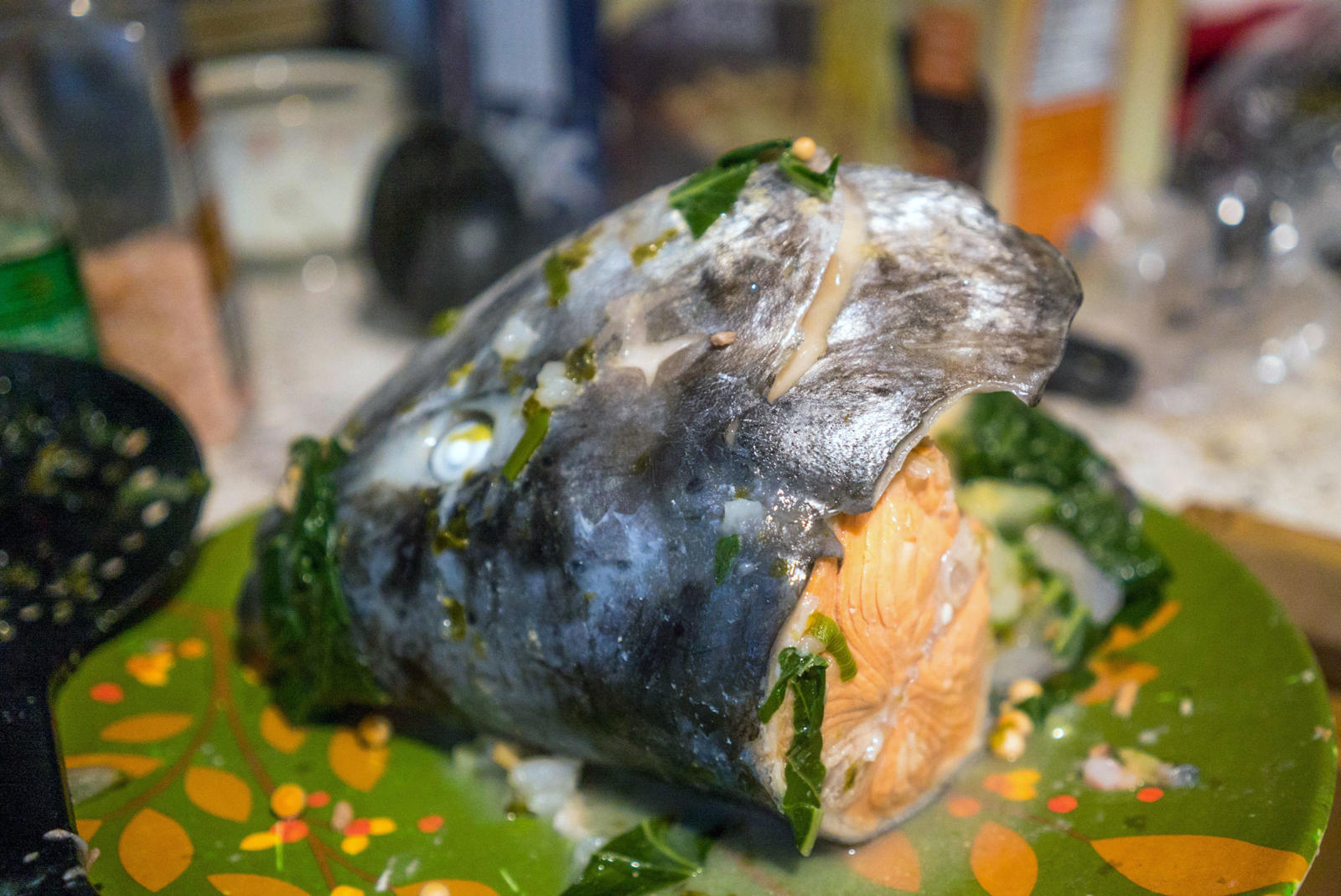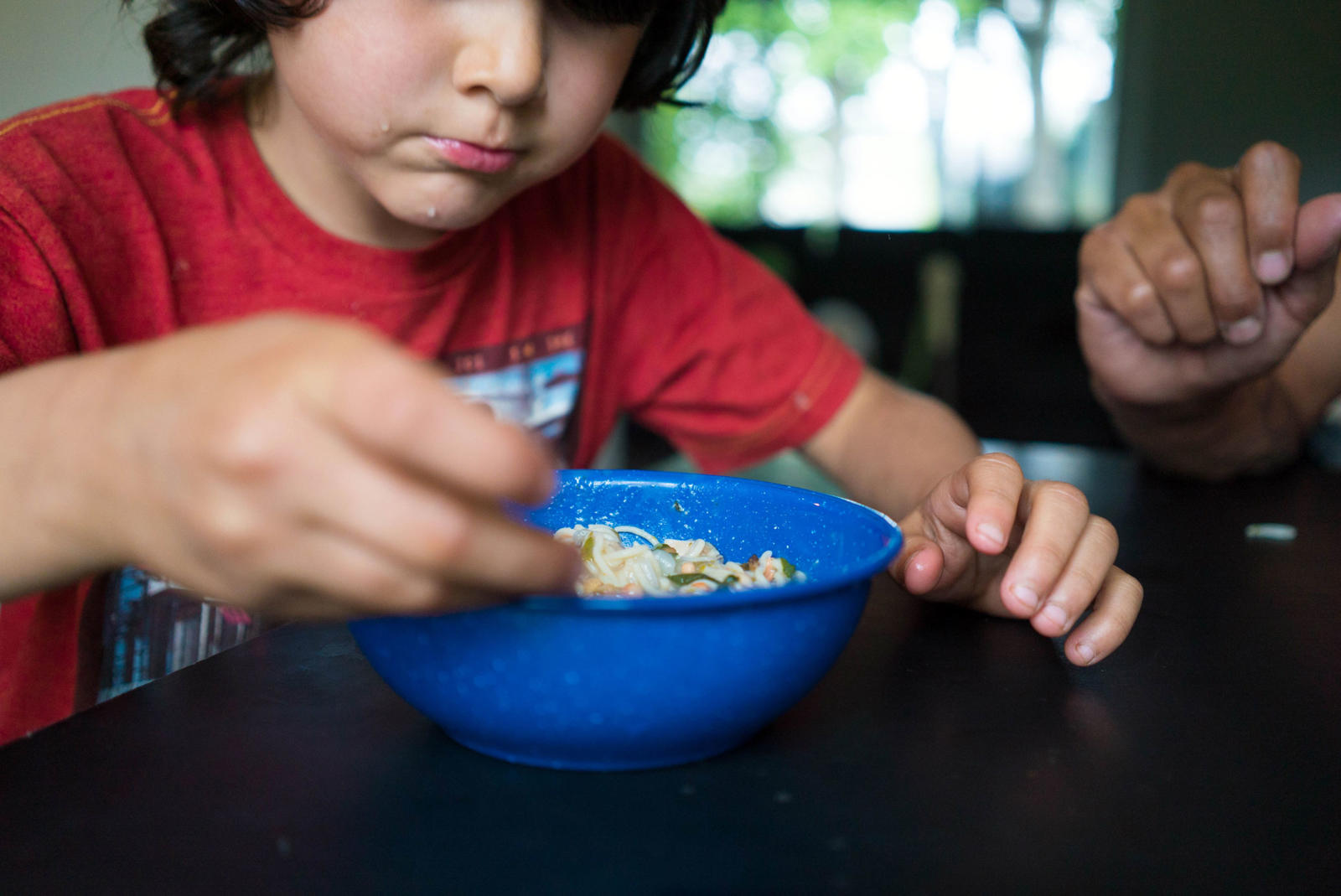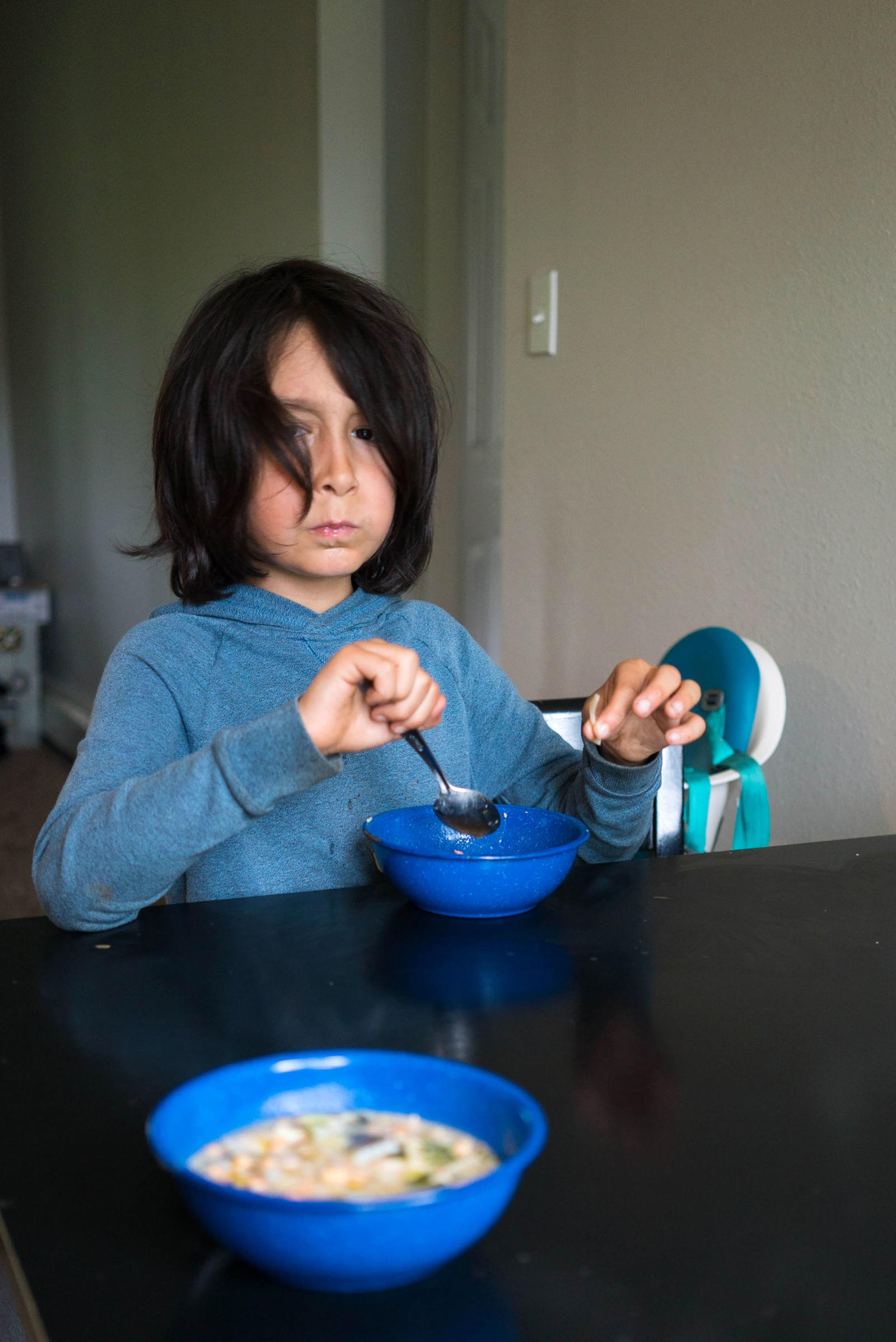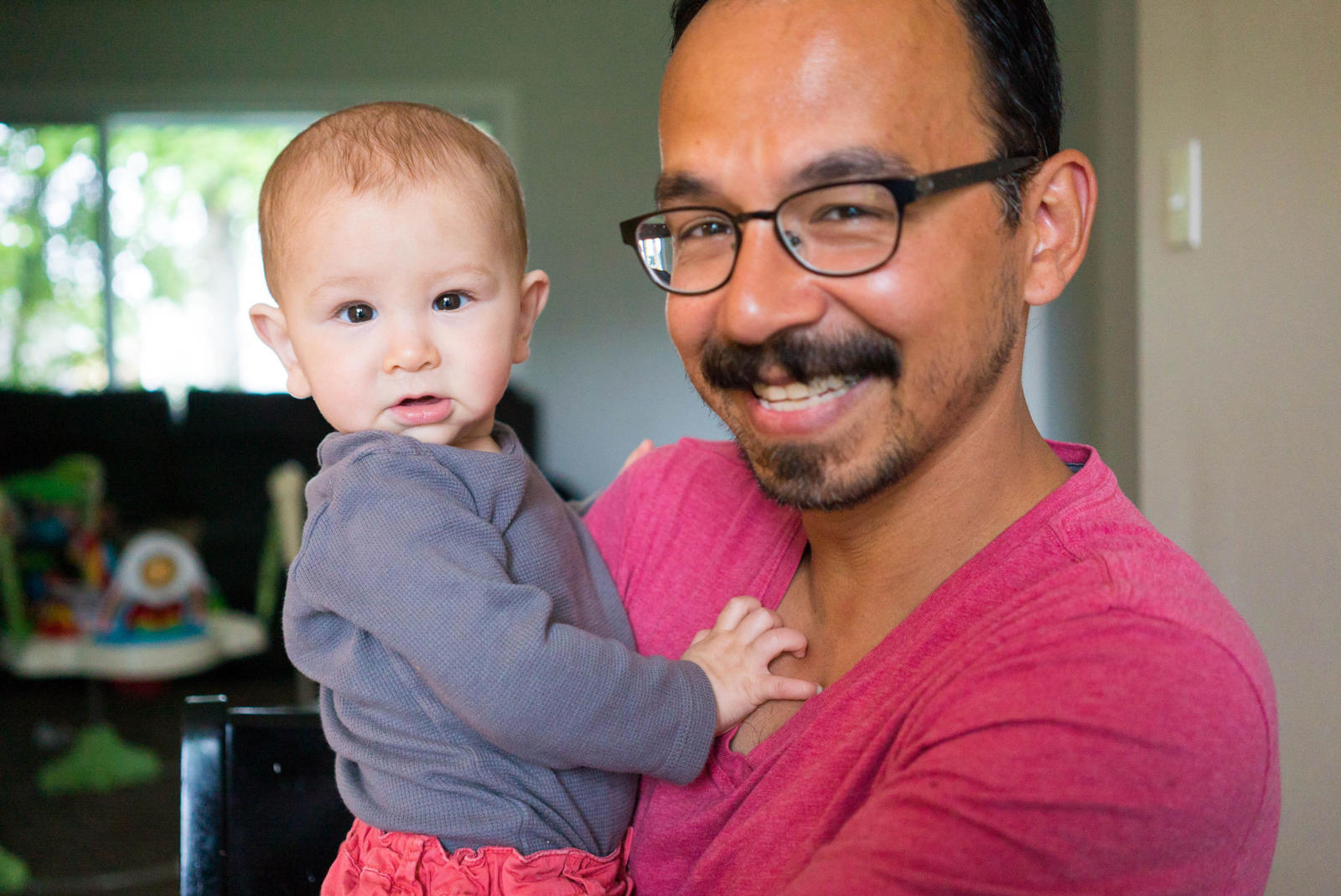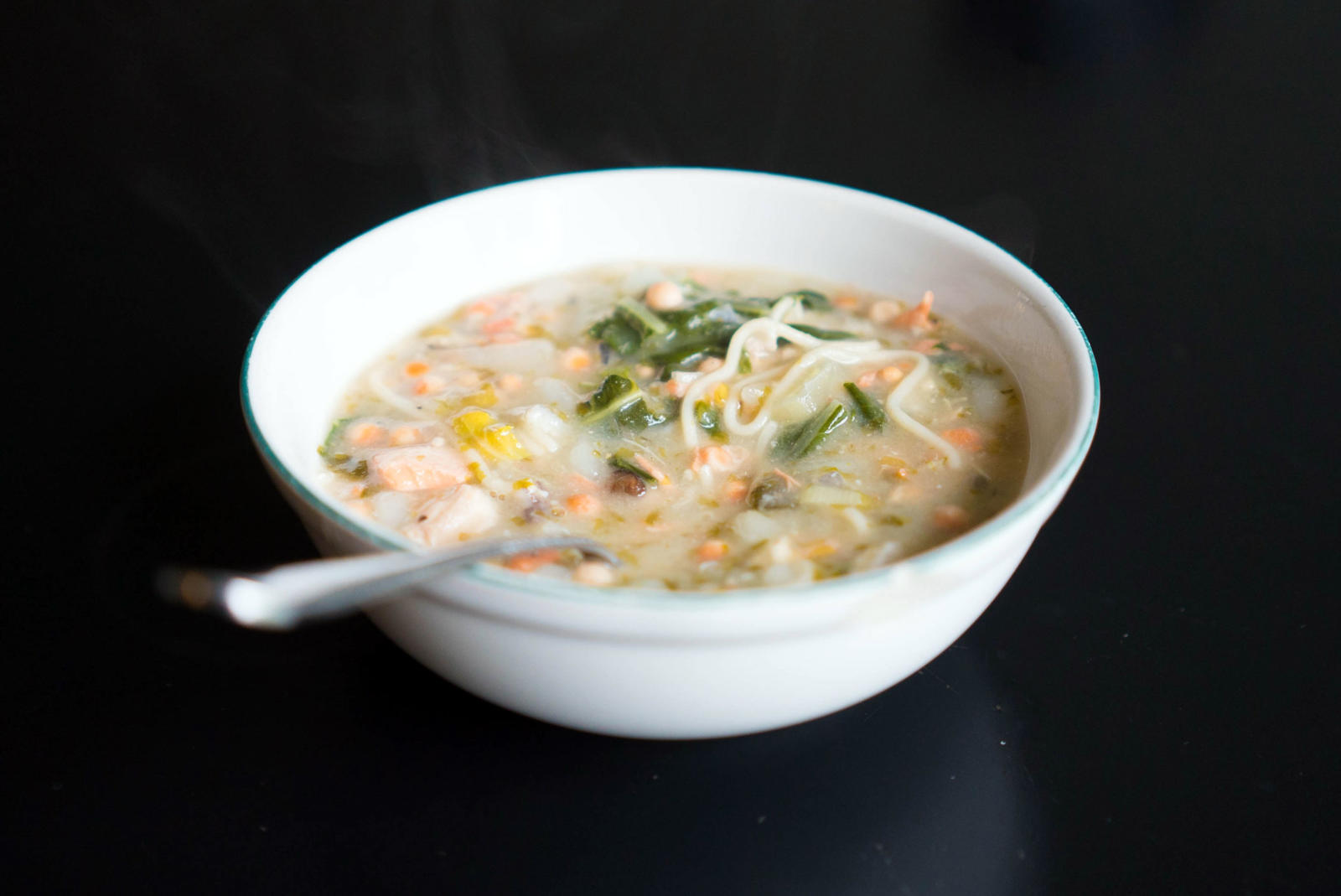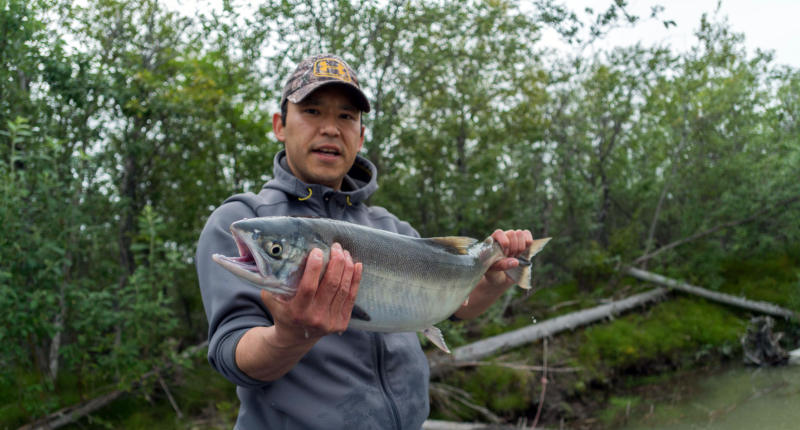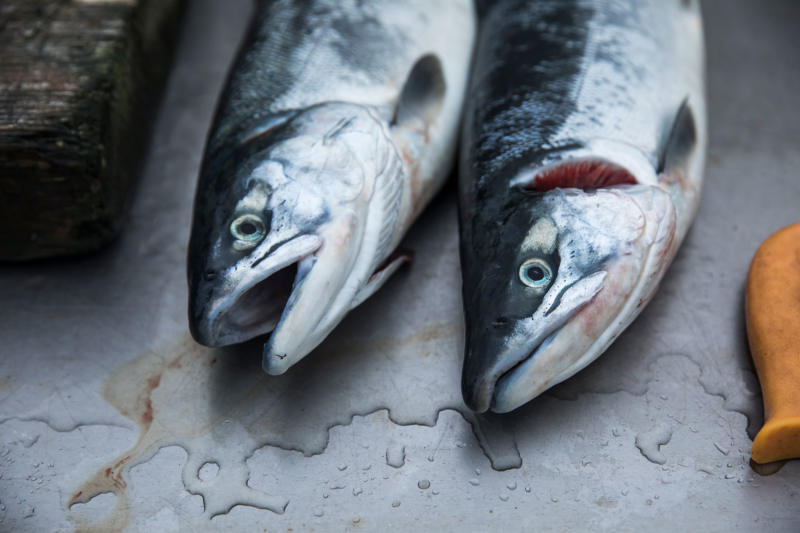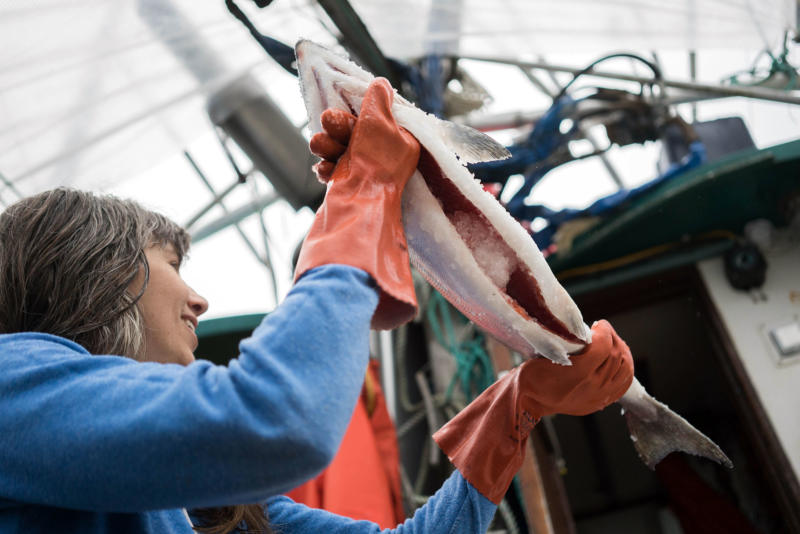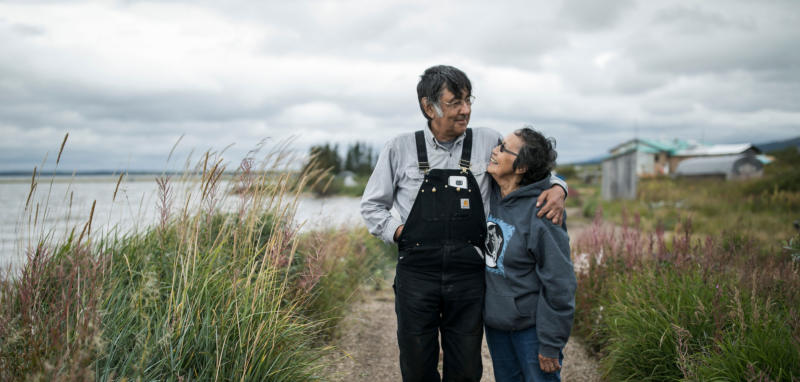Warren Jones carefully lays out the ingredients for his family’s fish head soup, a recipe he’s adapted and changed throughout his life.
Ginger, miso, bok choy, celery, noodles, seaweed, tofu, and salmon eggs surround the two fresh king salmon heads that stain his white cutting board light orange. Warren chops and dices in his kitchen while his two older kids scurry in and out of the house. His baby crawls happily around the living room; his middle child pops in briefly to jokingly feed crackers to the fish heads. Warren and his wife live in a blue house that sits on the edge of a suburb in southwest Anchorage. Through the woods, at the end of the street, Campbell Creek feeds into Turnagain Arm keeping Warren’s relation to the sea and the fish it provides close by.
